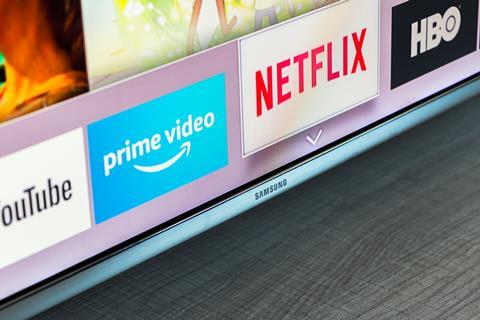Despite huge investments, the track record of telcos in the content business is decidedly mixed. Does BT’s plan for a full or partial sale of its sports pay-TV business signal that telcos are rethinking the idea of investing in content?

News that BT is looking at a full or partial sale of its pay-TV sports business has been broadly welcomed by investors, helping to push up the teclo’s share price by 6% over the past week.
Could it be that BT’s share price jump speaks volumes about the prevailing market view of telcos investing in video content?
From AT&T to Deutsche Telekom and Telefonica, many telcos have invested heavily in content in recent years.
Struggling to grow revenues amid the commoditisation of their traditional communications services, telcos looked to differentiate themselves by offering compelling video content to customers.
For BT, this meant investing billions in sports rights such as the Premier League the Champions League to build BT Sport. The idea, according to James Barford, head of telecoms research at Enders Analysis, was that it would help BT acquire and retain broadband customers with an interest in football, generate a brand ‘halo’ effect to boost the perception of BT with all consumers, and to protect against what BT saw as its primary competitor, Sky.
Eight years after its August 2013 launch, BT is now assessing all options for BT Sport including a full sale, joint venture partnership with a media company or selling a stake. It is reportedly in talks with Disney, Amazon, DAZN and ITV.
“A move away from premium sport is long overdue from BT, with there having proved to be little strategic ‘halo’ or other cross-over benefit to its core broadband and mobile business,” Barford said this week in an Enders Analysis briefing note on the BT Sport sale.
- Read more: OTT monetisation
Speaking to IBC365, Barford said it is always a temptation for telcos like BT to buy in content, but the economics are always challenging because they can only sell it to a restricted number of consumers. In BT’s case, this is to its own subscribers.
Enders Analysis estimates that BT has spent £2billion covering the cumulative losses of BT Sport over its lifetime. However, it adds that revenues and costs are now matched thanks to dramatic price increases for the service.
“Telcos seem to have a different mindset to TV companies when it comes to approaching the content business.” Richard Broughton, Ampere Analysis
BT Sport was initially effective at stabilising BT’s consumer retail business, and has been lauded for its high production values.
However, the strategic value of BT Sport lessened after BT and Sky called a truce in the expensive battle for sports rights in 2017. The two companies signed a cross-licencing agreement allowing customers to watch all Premier League games without being forced to buy separate TV packages.
The telco has instead looked to focus on aggregating content through its BT TV service, offering content from partners including Sky, Netflix and Amazon.
BT is not the only telco to be rethinking its media investments. This week US telco Verizon announced it is selling Yahoo, AOL and other media assets to private equity house Apollo for $5bn – having acquired them for more than $9bn between 2015 and 2017. Verizon had previously sold blogging site Tumblr in 2019, and HuffPost to BuzzFeed last year.
Verizon plans to use the proceeds of its media divestments to focus on its core phone and internet provider businesses.
Likewise, BT is seeking to refocus its business on its core telecoms operation. The company is investing £12.5bn in upgrading much of the UK’s internet network to next-generation full-fibre broadband, and is spending billions on building its 5G mobile network.
Investment bank Jefferies says BT Sport was an effective customer retention tool at one time, but that it is no longer needed as BT’s consumer product improves. “BT Consumer is regaining product differentiation on several fronts,” says the bank in a research note published last week. It cites BT subsidiary Openreach’s accelerating full fibre broadband build, and better pricing and customer service.
Richard Broughton, research director at Ampere Analysis, says telcos have always had an uneasy relationship with content. This is despite telcos and subscription TV businesses having many similar attributes, in particular acquiring and retaining customers who renew their bill each month.

“Telecommunications companies seem to have a different mindset to TV companies when it comes to approaching the content business,” says Broughton. “There is a reluctance to take big bets as TV is ultimately a risky, unpredictable business. You can buy or create content, and it can be a massive hit or a massive flop. Until you get to scale with a TV business, it is inherently quite swingy.”
Broughton cites the huge amount of content now being commissioned by Netflix as a prime example. “You don’t notice the flops, because it has so many hits as well.” But most telcos are reluctant to invest at such scale, given that they also need to spend on upgrading network infrastructure and improving their core phone and internet services.
“A move away from premium sport is long overdue from BT, with there having proved to be little strategic ‘halo’ or other cross-over benefit to its core broadband and mobile business,” James Barford, Enders Analysis
“That’s why, generally, a lot of telcos have struggled [with content]. They just haven’t had the willingness to invest in a holistic TV offer at the scale that is necessary to make a go of it,” says Broughton.
Investing in a content offer has also become more expensive and complicated for telcos in recent years, thanks to global players such as Amazon, Disney, Apple and Netflix boosting spend and driving up competition for rights.
Getting into the content business is also a challenge for telcos – after all, these are 100-year-old businesses that, for their first 80 years, only connected customers to others they wanted to communicate with. The development of new skills, new approaches and new relationships is required.
That’s not to say all telcos are rethinking their content investment. AT&T is still trying to grow WarnerMedia into a streaming competitor to Netflix and Disney, even as it struggles with high debt from its media acquisitions. Comcast, another internet provider, is still in the media business as well with NBCUniversal and Sky.
Movistar Plus, the successful pay TV division of Telefonica, one of Europe’s biggest telecoms, has been scaling up investment in content as it seeks pre-eminence as a producer in Spain and also to tap into international demand for Spanish-language content.
Meanwhile, Orange’s pay-TV service OCS (formerly Orange Cinema Service) is now available in France on a wholesale basis to platforms such as Canal+ and Amazon Prime Video, and not just to its own customers.
But for some telecoms companies, it’s clear that there is a new focus beyond investing in content – simply being a good telecoms company.
























No comments yet